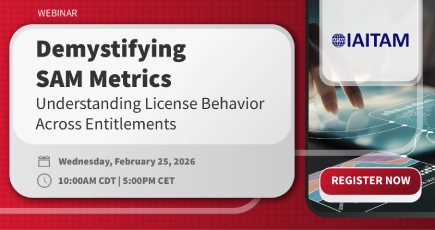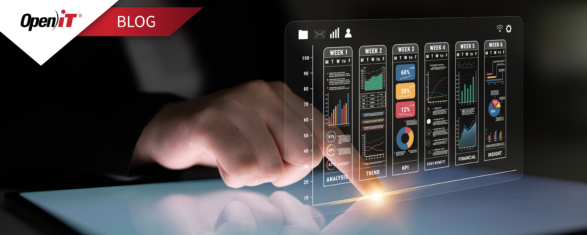In engineering-driven sectors—manufacturing, automotive, aerospace, defense, and architecture, engineering, and construction (AEC)—the role of the CIO is undergoing a fundamental shift. CIOs are no longer focused solely on IT infrastructure. They are increasingly expected to drive business strategy, accelerate digital transformation, and deliver measurable value across the enterprise.
According to the State of the CIO 2025 report, 52% of IT leaders now identify as transformational, dedicating significant time to modernization strategies (32%), aligning IT initiatives with business goals (31%), and reengineering business processes (26%). But in industries built around specialized engineering software, this transformation often runs into a critical barrier: a lack of visibility into how software licenses are actually used.
Visibility is Key
When license usage data is fragmented—scattered across vendor dashboards, spreadsheets, or departmental reports—it becomes difficult to assess true consumption patterns. Without a unified, real-time view, CIOs are forced to make high-stakes decisions based on assumptions rather than evidence.
In contrast, organizations that invest in centralized license visibility gain a distinct operational advantage. They can uncover underutilized assets, validate license demand, and confidently support cost optimization initiatives.
The potential for value recovery is substantial. In companies with more than 200 employees, inefficient software usage can lead to waste exceeding $235,000 annually—nearly 48% of total software spend. In engineering-driven enterprises, where specialized tools are deeply embedded in daily workflows, the opportunity for savings is even greater. The U.S. Department of Defense, for example, reported software-related inefficiencies costing at least $2.5 billion—highlighting the importance of granular usage insights at scale.
Transformation Starts with Operational Clarity
Being a transformational CIO doesn’t mean stepping away from technology—it means mastering it at a deeper level. For organizations whose success depends on tools like CAD, CAE, PLM, or simulation software, even small inefficiencies in license usage can cascade into delays and increased costs.
Yet most traditional IT asset management tools don’t capture the granular behavior of engineering applications. Vendor-supplied reports may offer usage totals but often lack context. Meanwhile, different teams may interpret data in conflicting ways, further eroding clarity and alignment.
As a result, many CIOs are asked to lead transformation initiatives without access to the data necessary to assess software ROI, capacity, or utilization trends—making it difficult to make timely, informed decisions.
Collaboration Requires a Shared Source of Truth
Transformational CIOs are also responsible for aligning competing priorities across functions. Engineering leaders want speed and innovation. Finance needs budget control. Operations require stability and predictability. As the connective tissue between these departments, CIOs must ensure each decision reflects both business needs and operational realities.
Aibel, a global engineering services provider to energy firms, struggled with excessive license use during downtime, inflating costs and reducing efficiency. With detailed license visibility, they optimized usage, cut license counts, and achieved 99% efficiency on a critical application.
License usage analytics provide a neutral foundation for alignment. By offering a detailed view of actual consumption patterns—who uses what, when, and how long—CIOs can resolve long-standing debates about resource allocation and cost justification. These insights enable more productive conversations around software optimization, license rationalization, and budget planning.
Insight Is the Foundation of Strategic Control
For CIOs in engineering-intensive industries, understanding how every license contributes to business value is key. This includes tracking metrics such as concurrent usage, inactive license time, denials, and license efficiency.
With this data, CIOs can better support key business objectives: avoiding overspending, improving user experience, and scaling access in line with project demands. This evolution—from reactive license management to data-driven software intelligence—marks a defining step in how CIOs generate business impact.
Data-Driven Future for CIOs
As digital initiatives continue to accelerate, CIOs will be judged not just by system uptime or project delivery, but by their ability to optimize enterprise resources and drive continuous innovation. In engineering-led organizations, this increasingly means mastering the usage of technical software assets.
Fragmented data simply won’t support this mandate. Without real-time, contextual insights, even the most capable CIOs are left guessing. Strategic decisions require trustworthy data to back them—and to anticipate future needs.
Visibility as a Prerequisite for Transformation
Transformational CIOs aren’t defined by the technologies they adopt, but by the enterprise-wide changes they enable. That kind of leadership starts with control—and control starts with visibility.
Open iT helps deliver that visibility, offering deep, actionable insights into engineering license usage. For CIOs tasked with aligning IT to the business, this data is not optional—it’s essential.
If you’re ready to align IT with business strategy, eliminate waste, and optimize your engineering software investments, schedule a 30-minute demo to get started.






